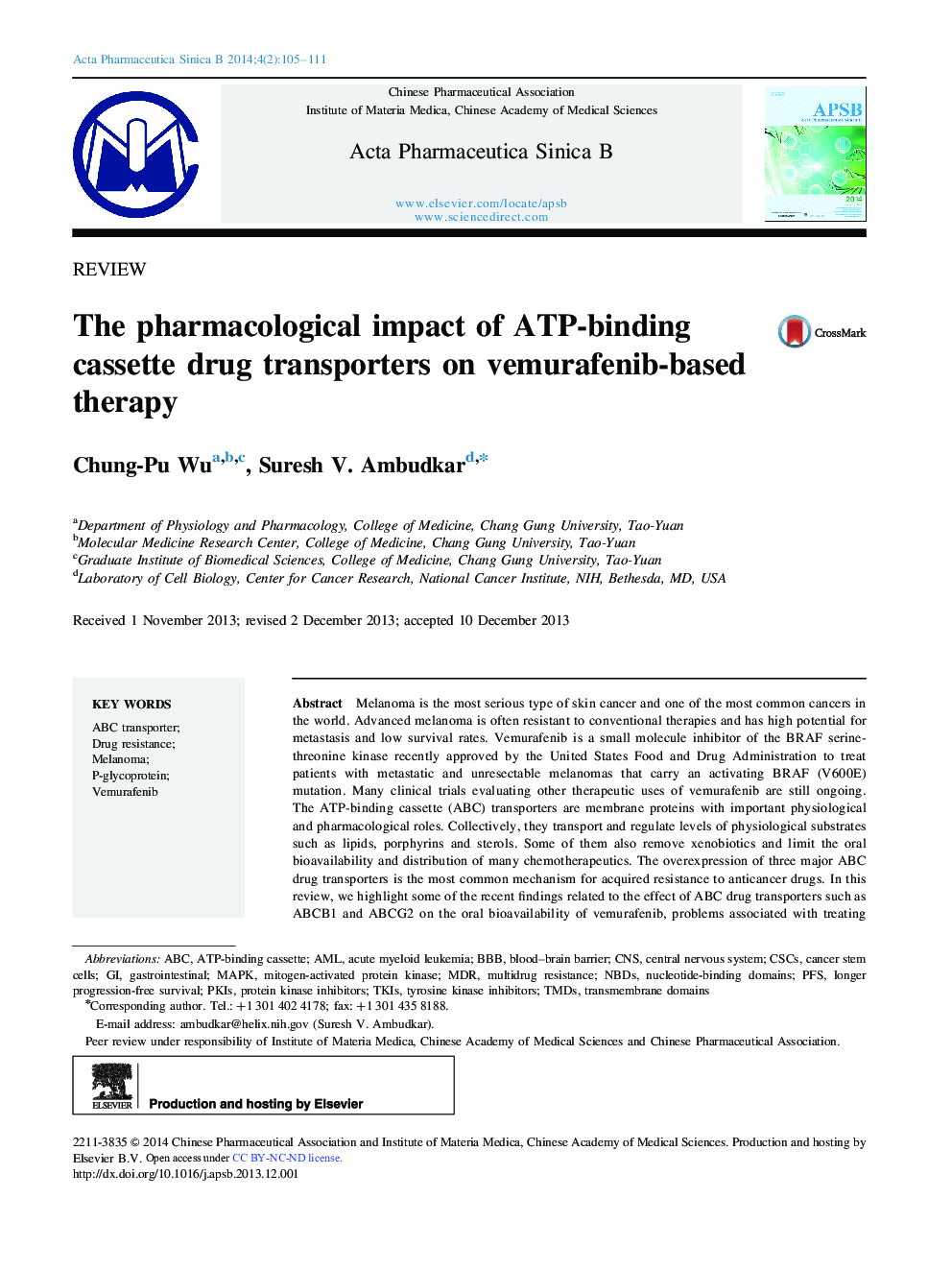| Article ID | Journal | Published Year | Pages | File Type |
|---|---|---|---|---|
| 2474560 | Acta Pharmaceutica Sinica B | 2014 | 7 Pages |
Melanoma is the most serious type of skin cancer and one of the most common cancers in the world. Advanced melanoma is often resistant to conventional therapies and has high potential for metastasis and low survival rates. Vemurafenib is a small molecule inhibitor of the BRAF serine-threonine kinase recently approved by the United States Food and Drug Administration to treat patients with metastatic and unresectable melanomas that carry an activating BRAF (V600E) mutation. Many clinical trials evaluating other therapeutic uses of vemurafenib are still ongoing. The ATP-binding cassette (ABC) transporters are membrane proteins with important physiological and pharmacological roles. Collectively, they transport and regulate levels of physiological substrates such as lipids, porphyrins and sterols. Some of them also remove xenobiotics and limit the oral bioavailability and distribution of many chemotherapeutics. The overexpression of three major ABC drug transporters is the most common mechanism for acquired resistance to anticancer drugs. In this review, we highlight some of the recent findings related to the effect of ABC drug transporters such as ABCB1 and ABCG2 on the oral bioavailability of vemurafenib, problems associated with treating melanoma brain metastases and the development of acquired resistance to vemurafenib in cancers harboring the BRAF (V600E) mutation.
Graphical abstractThis review highlights some of the recent findings related to the effect of ABC drug transporters such as ABCB1 and ABCG2 on the oral bioavailability of vemurafenib, problems associated with treating melanoma brain metastases and the development of acquired resistance to vemurafenib in cancers harboring the BRAF (V600E) mutation.Figure optionsDownload full-size imageDownload as PowerPoint slide
